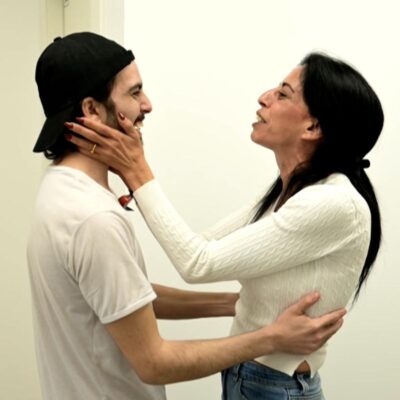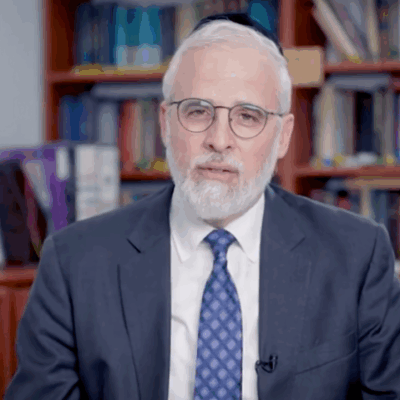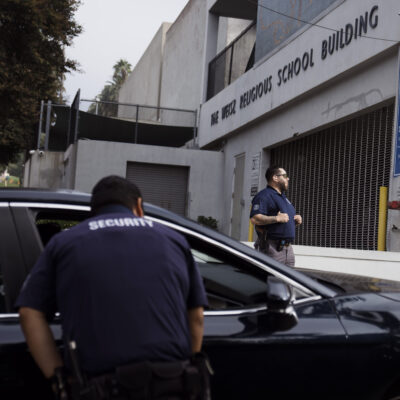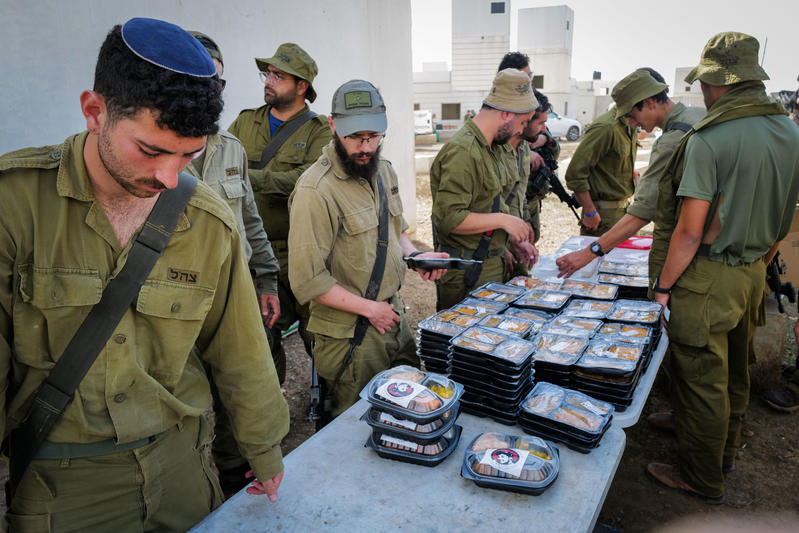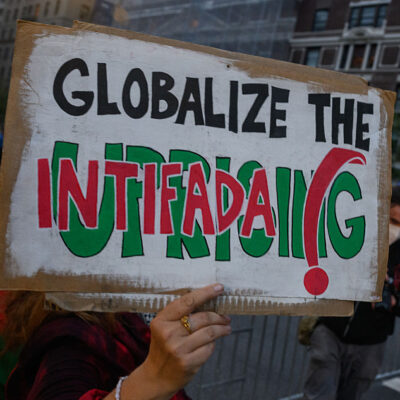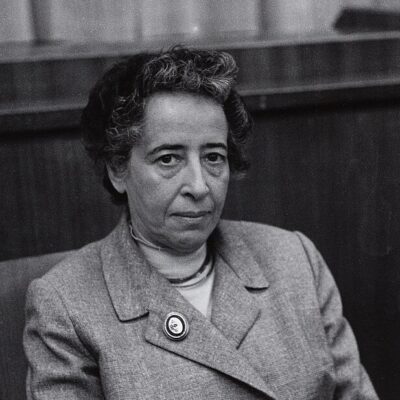Remembering Richard Siegel (z”l)
 By Steven Windmueller, Ph.D.
By Steven Windmueller, Ph.D.
Richard Siegel reflected a quiet demeanor but there was nothing passive about his intellect or his passion. His interests were broad and impressive, serving as a reflection of his deep and abiding beliefs concerning Jewish life and his love of Jewish culture and tradition. He has been described as a man of profound modesty and one who was insightful, patient, and measured.
One can describe Richard through the lens of his formal titles and positions but also through the legacy of the fullness of his contributions and the impact of his personal journey. In this memorial, we will attempt to tell these two defining stories that reflect both of these striking dimensions of this man. In many ways the quietness of Richard limited many of us from knowing his full measure. His funeral would be a public reflection of the depth and scope of his imprint on the Jewish scene, as expressed through his love and respect for liturgy, text, and music and his profound humanity as a loving husband, caring father, and committed friend.
Speaking at Richard’s funeral, John Ruskay would describe Richard as an “impresario of Jewish culture” as he remained committed to raising the visibility of the arts in Jewish life. His innovations were respectful of the tradition, without destroying the essentials of Judaism. He would have the opportunity not only to introduce Jewish artistic and musical talent but also to promote Jewish films and convene festivals linking to together the world of Jewish culture.
Rabbi Michael Paley, who also memorialized Richard, would define his imprint as a “revolutionary,” renewing Jewish life and aligning the arts with the texts of our tradition. As one of the founders of Havurat Shalom (1968), Richard would be part of a counter-cultural movement “to recreate Judaism in their own generation’s image” (Sarna). As others have memorialized, “Richard Siegel was a transformative force in Jewish life.”
I first had occasion to meet Richard in 2007 when he applied to be the Interim Director of the (then) School of Jewish Communal Service. We had occasion to work together at the College-Institute over the next six years until my retirement. Richard was an engaging teacher and an effective mentor to his students. Richard held to the view that Jewish communal service must be understood as a calling and as a sacred responsibility. This in turn motivated his commitment to strengthen and grow this training program. From the significant number of social media messages and email notes, Richard’s impact on his colleagues and former students has been transformative.
In 2009 he would be formally named Director of the School. During his tenure, he would be responsible for creating a new strategic plan for the School, envisioning a dynamic center for Jewish professional leadership. In a special edition of the Journal of Jewish Communal Service (summer/fall, 2009), honoring the School’s 40th Anniversary, Richard laid out his blueprint for training future Jewish communal personnel.
The renaming of the Zelikow School of Jewish Nonprofit Management, following a major gift from Marcie and Howard Zelikow, would enable the School to broaden its impact. In his remarks on the occasion of the dedication of the Zelikow School, he noted: “Now more than ever, Jewish organizations, whether startups or legacy institutions, need business-savvy, Jewishly educated and visionary professional leaders to help them address both the enormous challenges and significant opportunities facing the Jewish world and the broader society.”
At the time of his retirement from HUC in 2015, Richard was invited to deliver the graduation address, offering students the following sage observations:
- The work is not over… change is possible … and we need a new generation of leaders who are attuned to the underlying ethos of the times…
- The Jewish community needs leaders who can help us keep up with the changes coursing through modern society… whether technological or sociological.
- The Jewish community needs leaders who can create anew or re-engineer the Jewish organizational infrastructure, which is no longer working for the next generations emerging onto the scene.
- The Jewish community needs leaders who can make Jewish life a more competitive option to the myriad attractions and distractions of contemporary secular culture.
- The Jewish community needs leaders who can renegotiate our emotional attachment to Israel, in light of ever changing present-day realities.
- The Jewish community needs leaders who can actualize the global Jewish shtetl and give contemporary meaning to “Kol Yisroel arevim ve’b’ze.” (All Israel is responsible for each other.)
His Story Unfolds:
Raised in Pittsburgh, Richard would receive an M.A. in Contemporary Jewish Studies from Brandeis University (1972) and an M.A. in Jewish History from the Jewish Theological Seminary (1974). The Jewish Catalog (JPS, 1973), which he co-authored with Michael and Sharon Strassfeld, grew out of his master’s thesis at Brandeis, entitled “A Theoretical Construct for a Jewish Whole Earth Catalog.” The Catalog would carry the distinction as being the most popular publication produced by JPS, outside of its sales on Bibles.
His other writings included The Jewish Almanac (Bantam Books, 1981) and The Writer in the Jewish Community: An Israel-North America Dialogue (Associated University Press, 1993). Over the years, Richard contributed to other publications in connection contemporary Jewish culture. For 28 years he worked at the National Foundation for Jewish Culture (renamed the Foundation for Jewish Culture), and served as its executive director from 1978 to 2006. He created the Jewish Endowment for the Arts and Humanities to provide funding for artists, scholars and cultural institutions, and initiated the Fund for Jewish Documentary Filmmaking, the Fund for New Play Commissions in Jewish Theater, and the 6-Points Fellowships in the Arts.
Among his awards and honors were the Bernard Reisman Award for Excellence in Jewish Communal Service presented by Brandeis University (2002), the Jewish Cultural Achievement Award from the National Foundation for Jewish Culture (2004), the Career Achievement Award from the Jewish Communal Professionals of Southern California (JCPSC) (2015), and the Certificate of Recognition at HUC-JIR’s Los Angeles Graduation in the spring of 2015.
In recent years Richard had been working with his wife, Rabbi Laura Geller, on a forthcoming book, titled “Good at Getting Older: A Practical Catalog Grounded in Jewish Wisdom.”
Several years ago, Richard wrote a grant proposal to establish Chai Village LA as a virtual village connected to a national network. Richard along with wife Laura has been actively involved in growing this initiative. This project is designed to create a supportive community of senior Jewish families and individuals, involving members from Temple Emanuel (Beverly Hills) and Temple Isaiah (West Los Angeles). This unique program seeks to provide support to and connections among the participants, all residing on LA’s Westside.
Since his retirement Richard has also been an active contributor to a men’s book group that he helped to establish and where his insights and wisdom were not lost on his fellow participants.
In Closing: From his dedication to meditation through his love of the Jewish arts and liturgy, he will continue to instruct us about the depth and the diversity of the Jewish experience. As a communal professional, he will continue to remind us of our sacred responsibilities and commitments. In his various roles, he has modeled for us how to bring alive those very precious pieces of our heritage so that they can live within us and serve us. The imprint of Richard Siegel’s life will remain with us. May his memory be a blessing.
Dr. Steven Windmueller is the Rabbi Alfred Gottschalk Emeritus Professor of Jewish Communal Service at the Jack H. Skirball Campus of HUC-JIR, Los Angeles.

 Add EJP on Google
Add EJP on Google